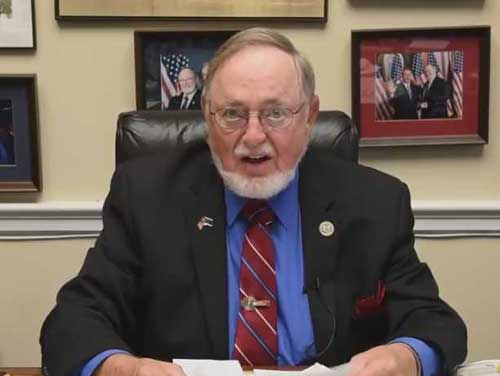WASHINGTON – Kexue Huang, a Chinese national and a former resident of Carmel, Ind., was sentenced today to 87 months in prison and three years of supervised release on charges of economic espionage to benefit components of the Chinese government and theft of trade secrets.
The sentencing was announced by Assistant Attorney General Lanny A. Breuer of the Criminal Division, Assistant Attorney General for National Security Lisa O. Monaco, U.S. Attorney Joseph H. Hogsett of the Southern District of Indiana, U.S. Attorney B. Todd Jones of the District of Minnesota, and Robert J. Holley, Special Agent in Charge of the Indianapolis Field Office of the FBI.
This is the first prosecution in Indiana for foreign economic espionage. Since its enactment in 1996, there have been a total of eight cases charged nationwide under the Economic Espionage Act.
“Mr. Huang stole valuable trade secrets from two American companies and disseminated them to individuals in Germany and China,” said Assistant Attorney General Breuer. “Economic espionage and trade secret theft are serious crimes that, as today’s sentence shows, must be punished severely. Protecting trade secrets is vital to our nation’s economic success, and we will continue vigorously to enforce our trade secret and economic espionage statutes.”
“The theft of American trade secrets for the benefit of China and other nations poses a continuing threat to our economic and national security,” said Lisa Monaco, Assistant Attorney General for National Security. “Today’s sentence demonstrates our commitment to detect, prosecute and hold accountable those engaged in these illegal activities.”
“The United States Attorney’s Office takes seriously its obligation to protect Hoosier businesses from economic espionage,” U.S. Attorney Hogsett said. “I thank the federal agents and prosecutors who helped bring this landmark case to a successful conclusion.”
“The Kexue Huang investigation and prosecution is an excellent example of how law enforcement and American corporations can work together to protect our corporations from economic espionage and the theft of extremely valuable trade secrets,” FBI Special Agent in Charge Holley stated. “Dow Agrosciences and the FBI cooperated extensively to make this important investigation a success. Economic espionage is a crime that undermines the competiveness of our corporations and our national interest in protecting intellectual property. The FBI will continue to work collaboratively with the private sector to aggressively investigate those individuals that seek to harm our country’s economic interests by stealing our intellectual property and thereby undermining our competitive economic position in the world.”
Huang, 46, was sentenced by the U.S. District Judge William T. Lawrence in the Southern District of Indiana. On Oct. 18, 2011, Huang pleaded guilty to one count of an indictment filed in the Southern District of Indiana for misappropriating and transporting trade secrets from Dow AgroSciences LLC with the intent to benefit components of the People’s Republic of China (PRC). Huang also pleaded guilty to one count of an indictment filed in the District of Minnesota for stealing a trade secret from a second company, Cargill Inc.
According to court documents, from January 2003 until February 2008, Huang was employed as a research scientist at Dow, a leading international agricultural company based in Indianapolis that provides agrochemical and biotechnology products. In 2005, Huang became a research leader for Dow in strain development related to unique, proprietary organic insecticides marketed worldwide.
As a Dow employee, Huang signed an agreement that outlined his obligations in handling confidential information, including trade secrets. The agreement prohibited him from disclosing any confidential information without Dow’s consent. Dow employed several layers of security to preserve and maintain confidentiality and to prevent unauthorized use or disclosure of its trade secrets.
Huang admitted that during his employment at Dow, he misappropriated several Dow trade secrets. According to plea documents, from 2007 to 2010, Huang transferred and delivered the stolen Dow trade secrets to individuals in Germany and the PRC. With the assistance of these individuals, Huang used the stolen materials to conduct unauthorized research with the intent to benefit foreign universities that were tied to the PRC government. Huang also admitted that he pursued steps to develop and produce the misappropriated Dow trade secrets in the PRC, including identifying manufacturing facilities in the PRC that would allow him to compete directly with Dow in the established organic pesticide market.
According to court documents, after Huang left Dow, he was hired in March 2008 by Cargill, an international producer and marketer of food, agricultural, financial and industrial products and services. Huang worked as a biotechnologist for Cargill until July 2009 and signed a confidentiality agreement promising never to disclose any trade secrets or other confidential information of Cargill. Huang admitted that during his employment with Cargill, he stole one of the company’s trade secrets – a key component in the manufacture of a new food product, which he later disseminated to another person, specifically a student at Hunan Normal University in the PRC.
In the plea agreement, Huang admitted that the aggregated loss from the misappropriated trade secrets exceeds $7 million but is less than $20 million.
The case is being prosecuted by Assistant U.S. Attorney Cynthia J. Ridgeway of the Southern District of Indiana, Trial Attorneys Mark L. Krotoski and Evan C. Williams of the Criminal Division’s Computer Crime and Intellectual Property Section (CCIPS), and Assistant U.S. Attorney Jeffrey Paulsen of the District of Minnesota, with assistance from the National Security Division’s Counterespionage Section. Significant assistance was provided by the CCIPS Cyber Crime Lab and the Office of International Affairs in the Justice Department’s Criminal Division.
The sentence announced today is an example of the type of efforts being undertaken by the Department of Justice Task Force on Intellectual Property (IP Task Force). Attorney General Eric Holder created the IP Task Force to combat the growing number of domestic and international intellectual property crimes, protect the health and safety of American consumers, and safeguard the nation’s economic security against those who seek to profit illegally from American creativity, innovation and hard work. The IP Task Force seeks to strengthen intellectual property rights protection through heightened criminal and civil enforcement, greater coordination among federal, state and local law enforcement partners, and increased focus on international enforcement efforts, including reinforcing relationships with key foreign partners and U.S. industry leaders. To learn more about the IP Task Force, go towww.justice.gov/dag/iptaskforce/.
Source: USDOJ






